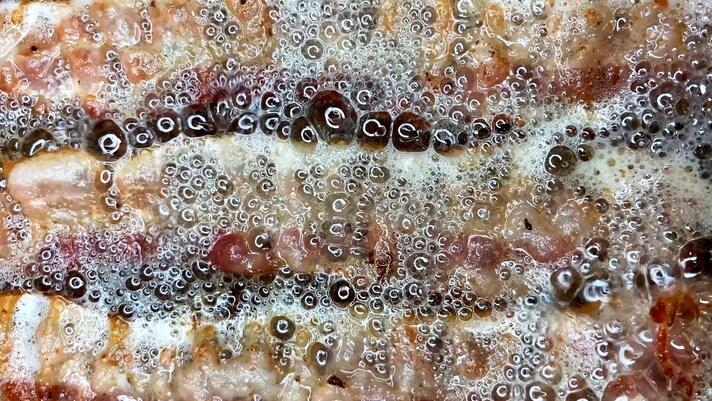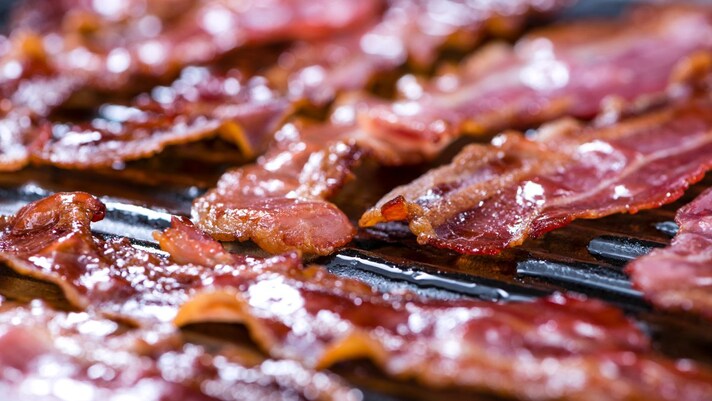Why You Should Never Pour Bacon Grease Down The Kitchen Drain!
Never dispose of bacon grease down the kitchen drain, as it solidifies and causes clogs. Soap and hot water don't effectively break it down, and flushing it down the toilet can block sewer lines. Instead, let the grease cool and solidify, then dispose of it in the trash. Proper disposal prevents costly plumbing issues and keeps your pipes clear.

Eating bacon is one of the most satisfying things in the world. Its crispy, chewy consistency and smoky flavor make us feel so good. But then… all that grease. There are many ways to reuse it, but in case it truly is beyond salvaging, you need to dispose of it. But wait! No! Don’t throw it down the kitchen drain!
Why You Should Never Pour Bacon Grease Down the Drain
Pouring bacon grease down the kitchen drain is a big no-no. When hot, bacon grease is in a liquid state, but as it cools, it solidifies. This solidification can occur within your pipes, leading to clogs that can cause severe plumbing issues. Over time, even small amounts of grease can build up, creating a blockage that can be costly and time-consuming to fix. It’s like creating an unwanted bacon sculpture inside your pipes—not exactly a masterpiece you'd want in your home.

Can Soap Break Down Bacon Grease?
You might think that hot water and soap can break down bacon grease and wash it away. However, this is a myth. While hot water may temporarily melt the grease, it will eventually cool and solidify further down the pipes. Soap might emulsify the grease, making it seem like it's dissolving, but once the soapy water cools, the grease can still solidify and stick to the insides of the pipes, leading to blockages. Essentially, soap and hot water are just delaying the inevitable plumbing nightmare.
Is Flushing Bacon Grease Down the Toilet an Option?
If you think flushing bacon grease down the toilet is a better option, think again. Grease can cause just as much havoc in your toilet pipes as in your kitchen drain. It can cool and solidify in the sewer lines, leading to blockages that can affect not just your home, but also the public sewer system. This can result in sewer backups and expensive repairs. Flushing grease down the toilet is merely transferring the problem from one set of pipes to another, potentially causing even more significant issues.

How to Properly Dispose of Bacon Grease
Proper disposal of bacon grease is straightforward and can save you from costly plumbing repairs. Allow the grease to cool and solidify, then scrape it into a container with a lid, such as an empty can or a jar. Once the container is full, you can throw it in the trash. Alternatively, you can line a bowl with aluminum foil, pour the hot grease in, and once it solidifies, wrap it up and toss it in the trash. If you want to be eco-friendly, consider composting the grease if you have a compost system that can handle fats, but be sure to check local guidelines first.
;Resize,width=767;)

;Resize,width=712;)

